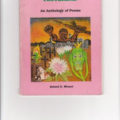No Cause to Stir Poem analysis
Titling Analysis (Linked to meaning)
“No cause to stir” by Mhasvi presents a mingled melancholic world that is rampant with warfare, violence, darkness and turmoil yet he urges the heart to sleep on and not to worry of the outside world. The persona narrates of the violent turbulence that rages the world but yet urges the love to take no heed of the suffering and pain. These concerns resonate in “The Flowers of Yesterday”, “Uncle Ben” and “Menstors at play” which further elaborate the thematic concerns of destruction and turmoil that reigns.
Thematic Concerns
1. Retrogressive nature of the human race
2. Overarching hatred that exists between humanity
3. Disillusionment
4. Dominance of violence
5. Debilitating nature of warfare
6. Hopelessness
7. Pain and suffering
8. Despondency
9. Natural turbulence
Styles Used
●. Allusion
●. Irony
●. Deep seated satire
●. Symbolism
●. Refrain
●. Allegory
●. Auditory imagery
●. Personification
●. Juxtaposition
●. Capitalization
●. Alliteration
●. Paradox
Nuances/Phrases/Diction (showing plunder and destruction)
■. Personification is depicted as the persona as Fate is characterized as “vomiting boiling rock at Pompeii’s feet!” Further portraying the inevitable fate of humanity magnified by the allusion of “Pompeii” which is synonymous to the Italian city that was swept over by lava.
■. The poet efficiently makes use of paradox to present the retrogressive nature of the human race that dangers them as the persona calms the heart which is symbolic to humanity as he proposes that “there’s little cause to stir” which is juxtaposed to the turmoil that exists in the world.
■.The refrain of the title “No cause to stir” is symbolic to the disillusionment that humanity faces as they realise there is a need for change yet do nothing about it.
■.Plunder and warfare radiates in the poem as the persona portrays nunaces which are connotative to battle such like “blood-drenched fields”, “blood-storms”, “plunging knife and blundering shot” amongst other as to emphasis warfare that runs rampant in the world.
■.The repetition of “Men-Gods” emphasises how men have taken the place of gods as they made the “woeful world” their own.
■.The persona presents the overarching hatred that exists in humanity as the “Venus shrine of dreams” has been “wreck with age and crumpled brow” depicting how men have forsaken love and let hatred rule over them.
■.The poet ridicules men for his foolishness as he refuses to let go of the corrupted knowledge of destruction he possesses as his love is characterized as a “broken-winged bird tumbling through” showing his helpless stupidity
■. Nuances of natural turbulence is depicted as the “sun swirls”, “wind howls and shrieks” and “the world unreels and wobbles” in response to humanity’s plunder and exploitation of the land further portraying land degradation.
First the persona make use of paralinguistic devices – comma “sleep dear heart ” to create a gloomy atmosphere as he is using euphemism ” Sleep ” rather than harsh language death . he personifies the heart with human qualities , asking it not to care about the outside world which is rapacious and violentin nature.
The poet efficiently make use of paradox to present the retrogressive nature of the human race that dangers them as the persona calms the heart which is symbolic to humanity as he propose that “there is little cause to stir” which is juxtaposed to the turmoil that exists in the outside world.
In the first line the refrain ” no cause to stir” is symbolic to the disillusionment that humanity
faces as they realize there is need for change yet they do nothing.
He makes use of geographical language” sheltered valleys of home” the father embraces his child with affectionate as suggested by the word cuddle and bury him close to his home were there is peace as suggested by the word valley
Then in the first stanza Mhasvi is bringing out the debilitating nature of warfare . The use of word like sabred sword fingers and historic blood courses maybe suggesting how political leaders monstrous men gods are aggressively killing each other for power and authority and building castles on top of graves.
Considering such pain , suffering and dominance of violence the persona still urge the heart to sleep in peace .
In stanza 2 the persona speaks about the awakening of the new day which is full of distress ,
turbulence ,great anxiety , uncertainty of events. He brings out the theme of natural turbulence and hopelessness. In the first line “the shadow dodge the brooding silent gloom ” Mhasvi unsnarls the painful memories , thoughts and thwarted dreams full of possibilities can now only be mirrored in dew drops.
Mornings and Dawn are associated with life full of hope but in this case people have been shuttered and deserted their homes during war time and plants have started growing up in their thatched huts ( afro centric perspective) . They have surrendered their homes and everything they owe ,forced to live everything so as to meet with war demands.
The mother reminds again her daughter that the problems ,evil forces , uncertainties and struggle of the world are not meant for her innocent soul (no cause to stir or to worry or to be sad), she believes that in her immortal state there is eternal sleep .
stanza 3 is a warning against love . The poet ridicules men for his foolishness as he refuses to let go of corrupted knowledge of destruction he possesses as his love is characterized as a “broken winged bird tumbling through ” showing his helpless stupidity. Men are enduring pain in the name of love .
Mhasvi deploys the theme of Disillusionment that humanity faces as they realize there is need for change yet do nothing about it.
In the third stanza he use alliteration “Of a frateful forge ” to insinuate the fabricated , falsified and fake love among humanity



